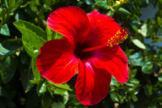
Global Hibiscus Flower Powder Market Analysis, Drivers, Restraints, Opportunities, Threats, Trends, Applications, and Growth Forecast 2021 to 2031
-
15662
-
May 2023
-
166
-
-
This report was compiled by Correspondence Linkedin | Detailed Market research Methodology Our methodology involves a mix of primary research, including interviews with leading mental health experts, and secondary research from reputable medical journals and databases. View Detailed Methodology Page
-
“Global Hibiscus Flower Powder Market” is an upcoming report at Market.biz. Key factors have been collected and studied, assessed and analyzed comprehensively through exhaustive primary and secondary research efforts to accurately present details regarding the global hibiscus flower powder market. Besides revenues for segments, global, regional, and country-wise market revenue segmentation is presented in the final report. Key trends, revenue growth driving factors, restraints, and opportunities are included. The company profiles of key players comprise detailed information, recent developments, strategies, and acquisitions & mergers, etc. The global hibiscus flower powder market is segmented by packaging type (packets, bags, cardboard boxes), nature (organic, conventional), application (pharmaceutical, food & beverages, cosmetics, skin care, others), end-product (powdered, tea bags), sales channel (direct sales, indirect sales, specialty stores, drug stores, online, others), and regions and countries.
Global Hibiscus Flower Powder Market: Overview
Hibiscus powder is derived from hibiscus flowers. The hibiscus shrub belongs to the mallow family, and resembles the shape of a trumpet. These are tropical deciduous shrubs, and the flowers are dried and powdered, and used as an ingredient in skin care and hair care products among others.
Global Hibiscus Flower Powder Market: Dynamic
Revenue growth of the global hibiscus flower powder market is primarily driven by increasing health awareness among individuals and shifts in preference for healthy lifestyle. Hibiscus flower powder offers health benefits, and awareness and availability of products is resulting in growing traction in the market. Health benefits of hibiscus flower powder include lowering body temperature and cholesterol levels, as well as helping to relieve sore throat. Hibiscus flower powder has antioxidant properties as well as anti-exfoliating and inflammatory properties, which can be beneficial for the skin. Hibiscus flower powder is used in various cosmetic and personal care products, including soaps, shampoos and conditioners, facial masks, lotions, and creams. Growing adoption of organic and natural products is expected to continue to drive growth of this market. Growing demand for chemical-free hair and skin care products is a key factor expected to support market growth. Social media platforms and beauty blogs, and high visibility of products and user reviews is expected to continue to influence sales of vegan cosmetics products.
Global Hibiscus Flower Powder Market: Segmentation Analysis
By Application: The food & beverage segment is projected to account for highest revenue share among the other application segments. Growth of this segment can be attributed to extensive use in a wide variety of food and beverage products, including cocktails, puddings, jellies, juices, and jams. Furthermore, hibiscus flower powder is used as extra flavoring and coloring.
Global Hibiscus Flower Powder Market Regional Analysis:
The North America market is projected to continue to dominate in terms of revenue share over the forecast period. The market in Europe is expected to account for second-highest revenue share. Growing awareness about health and wellness is leading to increasing adoption of healthy lifestyle, and is among some of the key factors driving growth of the market of these regions.
Asia Pacific market is projected to register a High Compounded Annual Growth Rate (CAGR) over the next 10 years. Increasing per-capita income and high product visibility in emerging economies such as India and China are among some key factors projected to continue to drive growth of the market in the region.
Segmentation: Global Hibiscus Flower Powder Market
By Packaging Type
- Packets
- Bags
- Cardboard Boxes
By Nature
- Organic
- Conventional
- By Application
Pharmaceutical
- Food & Beverages
- Cosmetics
- Skin Care
- Others
By End-Product
- Powdered
- Tea Bags
By Sales Channel
- Direct Sales
- Indirect Sales
- Specialty Stores
- Drug Stores
- Online
- Others
By Region:
- North America
- Europe
- Asia Pacific
- Latin America
- Middle East & Africa
Attribute Report Details Market Size Ask For Market Size Growth Rate Ask For Growth Rate Key Companies Ask For Companies Report Coverage Revenue analysis, Competitive landscape, Key company analysis, Market Trends, Key segments, Distribution Channel, Market Dynamics, COVID-19 Impact Analysis and more… Historical Data Period 2015-2020 Base Year 2022 Forecast Period 2022-2031 Region Scope North America, Europe, Asia-Pacific, South America, Middle East & Africa Country Scope United States, Canada and Mexico, Germany, France, UK, Russia and Italy, China, Japan, Korea, India and Southeast Asia, Brazil, Argentina, Colombia etc.Saudi Arabia, UAE, Egypt, Nigeria and South Africa Revenue in US$ Mn -
-
- Indus Valley; Herb Essential
- Mesmara Botanics Private Limited
- Bio Actives Japan Corporation
- Matru Ayurveda
- Martin Bauer Group
- RANSOM NATURALS LTD.
- Earth Expo Company
- Banyan Botanicals
- DEVODHYOG FOUNDATION
- Blend It Raw Apothecary
- Herbeno Herbals
- Republic of Tea
- BioActives
- Matru Ayurveda
- Traditional Medicinals
- Fortune Health Care
- Bio Organic
- Wild Hibiscus Flower Co.




